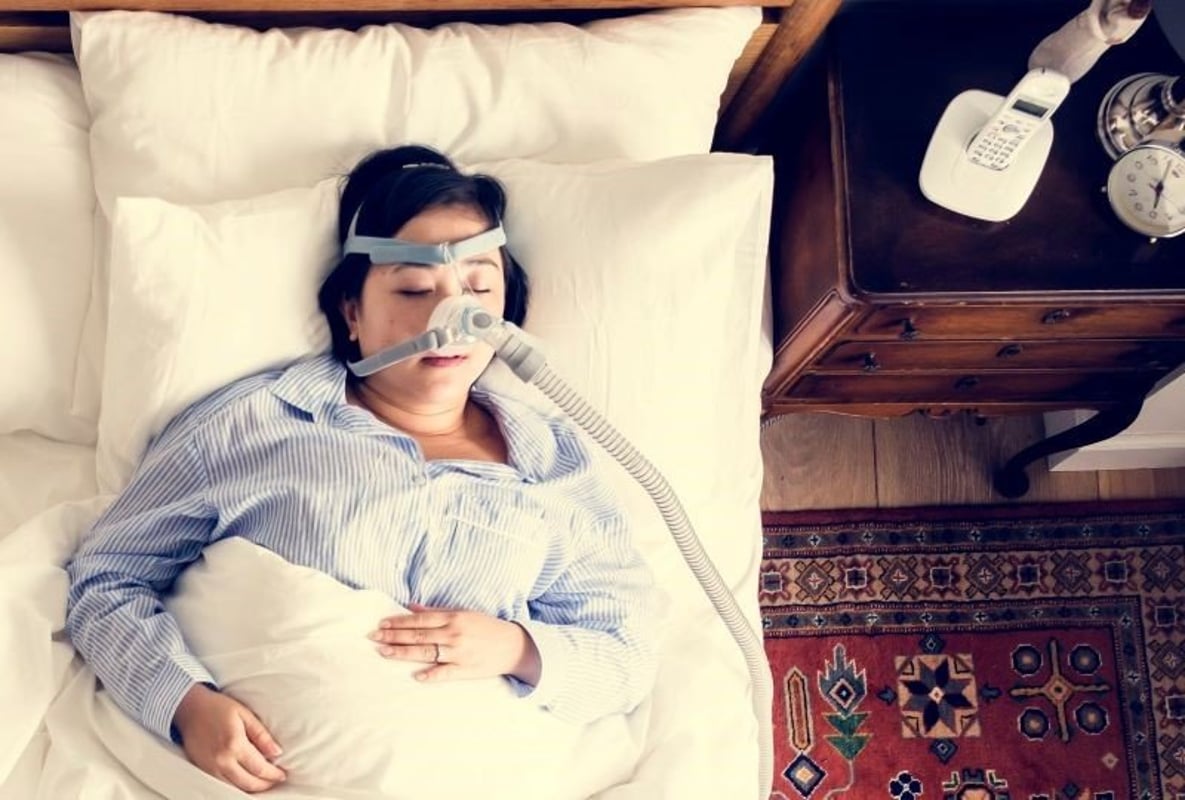One in Five May Have Obstructive Sleep Apnea

WEDNESDAY, May 17, 2023 (HealthDay News) -- In France, the weighted prevalence of obstructive sleep apnea (OSA) is about 20.9 percent, although only 3.5 percent have treated OSA, according to a study published May 10 in ERJ Open Research.
Pauline Balagny, M.D., from the Université Paris-Cité, and colleagues examined the prevalence and determinants of OSA among participants in the French population-based CONSTANCES cohort, aged 18 to 69 years at inclusion, and being treated for sleep apnea or screened for OSA using the Berlin Questionnaire in 2017.
The researchers found that the prevalence of treated OSA was 3.5 percent among 20,151 participants. The prevalence of untreated individuals with a positive Berlin Questionnaire was 18.1 percent, for a total weighted prevalence of 20.9 percent. The prevalence of OSA symptoms was 37.2 and 14.6 percent for severe snoring and hypersomnolence, respectively. Male sex, age, previous cardiovascular events, smoking, low educational level, low physical activity, and depressive symptoms were associated with having treatment for OSA or a positive Berlin Questionnaire in a multivariable logistic regression analysis.
"We know that OSA is a major health hazard but if patients are diagnosed with the condition, they can be given treatments and advice to mitigate the risks," Balagny said in a statement. "Our study suggests that OSA is common, but the majority of those affected do not know they have the condition."
Related Posts
Want Your Child to Have Empathy? Stay Close
MONDAY, Oct. 9, 2023 (HealthDay News) -- Young children who are close to their...
Enhanced External Counterpulsation Eases ‘Long COVID’
MONDAY, Feb. 28, 2022 (HealthDay News) -- For patients with "long COVID,"...
10 Percent of CRE Cases in U.S. Not Tied to Health Care Risk Factors
THURSDAY, Aug. 18, 2022 (HealthDay News) -- In 2012 to 2015, 10 percent of...
Biden Administration Announces Details of Vaccination Requirements for Foreign Travelers
https://consumer.healthday.com/b-10-26-biden-admin... Credit:...
